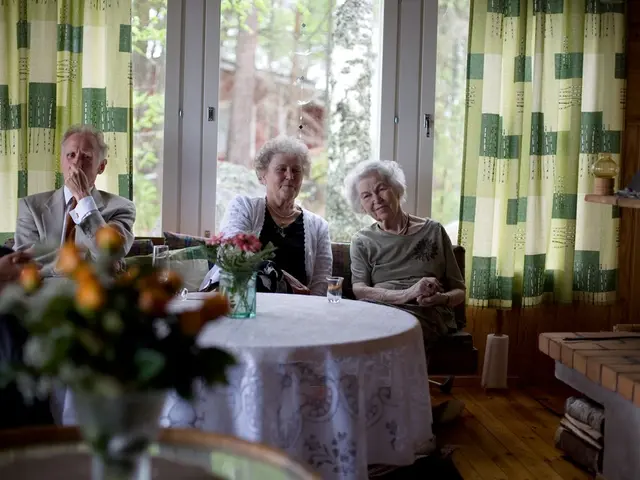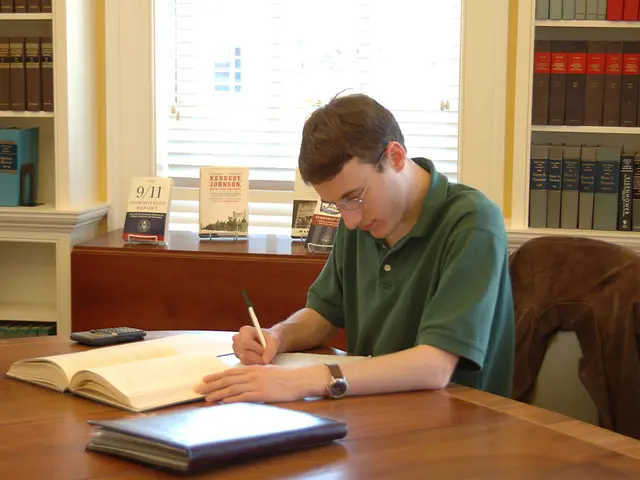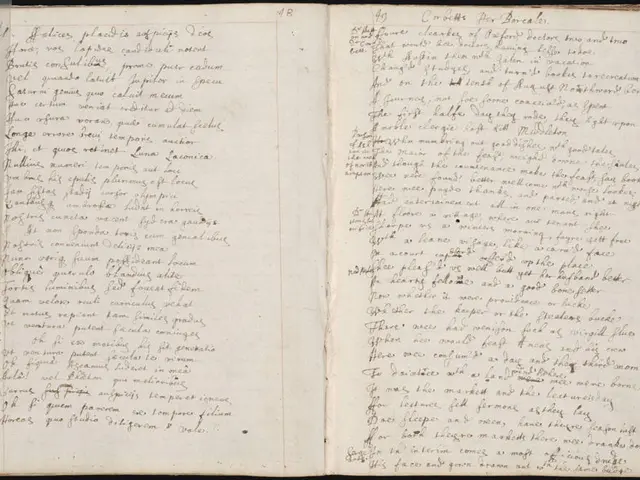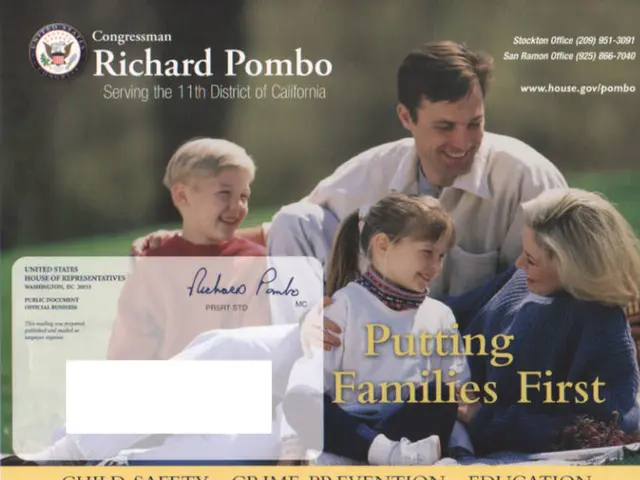New Vice-Chancellor of SPÖ Effectively Disbands Foundation of Film Subsidies
In the bustling world of Austrian cinema, a recent fuss erupted due to the proposed budget cuts by the new three-party coalition. Minister Andreas Babler, from the SPO, put forward stark reductions to the funding for domestic cinema through the OFI financing scheme. The budget for this scheme is slated to slash from the current 37.5 million euros to a meager 15.5 million euros next year. Furthermore, no additional funds will be allocated this year, leaving several film projects potentially hanging in the balance.
At the Austrian Film Awards ceremony last week, the board of the Austrian Film Academy voiced concerns and appealed to the federal government to collaborate with the industry for constructive problem-solving. The film industry has already floated ideas to discuss with Minister Babler during their upcoming meeting.
Our site queried the Federal Ministry of Culture, Arts, and Media (BMWKMS) on whether the OFI+ scheme would shift into a tax incentive model (essentially tax refunds) and if the selective OFI film funding could be significantly beefed up for this purpose. We also inquired about using the entire OFI+ volume (15.5 million euros for 2026) for this purpose.
Focus on selective funding
The Ministry responded today that the focus of film funding for the years 2025 and 2026 will center on selective funding – funding decisions made by the Austrian Film Institute (OFI) based on various criteria to identify worthy films.
According to the Ministry statement, a considerable portion of the funds allocated for OFI+ financing in 2026 will be channeled towards selective film funding. This step aims to emphasize the cultural aspects of film funding, avoiding a "free-for-all" scenario due to the limited funding (first-come, first-served principle). The Ministry also argued that this approach allows better control over expenses, ensuring the OFI can allocate funds based on artistic criteria. Projects in the past funded automatically through OFI+ have contributed less to the development of Austrian film culture.
Big vs. small?
Minister Babler stated: "As Culture Minister, it is my responsibility to nurture and protect Austrian film culture." Given the budget cuts, it is essential to fund targeted, high-quality artistic productions rather than providing unconditional funding to large production companies.
However, in recent years, the (primarily automatic) OFI+ funding has been vital for many – even smaller – projects due to significantly increased production budgets. At the Austrian Film Awards, President Arash T. Riahi also stated that the current cuts affect not only large international co-productions but "the core of Austrian film and Austrian stories."
The OFI should continue to exist as a support scheme, but initially only "restricted to the area of distribution promotion (promotion of Austrian film stars) and for films that have a selective funding allocation." That is the plan communicated by the BMWKMS. This would leave approximately 1.3 million euros in the OFI+ fund – essentially a de facto dissolution.
For the selective film funding now preferred by Babler, the Austrian Film Institute allocated 15.4 million euros last year (around 73 percent of the total OFI budget funded by the Ministry of Culture). With the expected additional funds from OFI+ (around 14 million euros), this area would be doubled. Film director Roland Teichmann of the OFI has been calling for an increase in the selective OFI budget for years. He considers the recent shift as a "culturally significant impetus at the right time", as reported by the Ministry.
Reactions to cuts in film funding range from "alarm signal" to "bombshell"
Streaming levy to come into effect in 2027
From 2027 onwards, the Ministry aims to regain "more space for cinema film funding" once again. To achieve this, the previously announced investment obligation is planned, requiring international streaming providers to participate in the Austrian film market. This obligation is expected to start by 2027 and should enable an increase in funds for Austrian film. Comparisons with other European markets show that a streaming levy doesn't always yield the same percentage of the streamers' revenue. Negotiations on this matter may take longer.
Evaluation of the OFI: Inefficiencies
As part of the evaluation of the FISA+ funding scheme for TV and streaming by the Ministry of Economics, the OFI+ funding schemes were also examined. We queried about this as well, as whispers of the evaluation results being available for some time had been circulating in the industry. The BMWKMS has now announced that the evaluation will be published in the coming week.
The OFI+ funding scheme, established in 2023, was generally considered positive for the Austrian film landscape, but the evaluation also exposed inefficiencies in the funding efficiency. Specifically, the expense incurred for purely Austrian films has decreased, and the value creation bonus in international co-productions made it more accessible and desirable, leading to a positive budget perspective, albeit with negative revenue effects.
The OFI+ was important in stabilizing underfunded selective cinema film production, but it fell short of achieving optimal funding efficiency in the area of international co-productions due to the attractive yet budget-intensive value creation bonus in this area.
Film professionals on Babler's budget cuts: "We need to talk."
"Round Table" on June 25
On June 25, Babler plans to invite stakeholders from the film industry to a "round table" in parliament to discuss the proposed film policy measures and a "cinematic cultural perspective from 2027."
- Economic and social policy discussions surrounding the proposed film budget cuts in Austria have intensified, prompting appeals from the Austrian Film Academy to collaborate with the government for collaborative problem-solving.
- The Austrian film industry is exploring potential solutions to address the budget cuts, with plans to discuss these with Minister Andreas Babler at an upcoming meeting.
- Our site inquired about the possibility of the OFI+ scheme shifting into a tax incentive model and the potential beefing up of the selective OFI film funding for this purpose.
- The Ministry of Culture, Arts, and Media has revealed that the focus of film funding for the years 2025 and 2026 will be on selective funding, with a considerable portion of funds allocated for OFI+ financing in 2026 channeled towards this purpose.
- This shift aims to emphasize the cultural aspects of film funding, ensuring better control over expenses and allocating funds based on artistic criteria, as stated by the Ministry.
- The forthcoming "round table" on June 25 will be chaired by Minister Babler and will invite stakeholders from the film industry to discuss film policy measures and a cinematic cultural perspective from 2027.
- Meanwhile, the Ministry is set to publish the evaluation results of the OFI+ funding scheme, with whispers indicating that the results have been circulating in the industry for some time.
- The Evaluation is expected to highlight both the positive impact of the OFI+ scheme on the Austrian film landscape and its inefficiencies in funding efficiency, particularly in the area of international co-productions.








